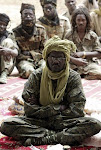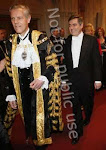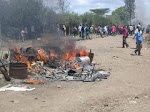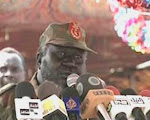"As long as the differences and diversities of mankind exist, democracy must allow for compromise, for accommodation, and for the recognition of differences" – Eugene McCarthy.
In our previous features, "Integral" mentioned – amongst other common causes of disunity in South Sudan – tribalism, nepotism, land grabbing and occupation, greed for government power, tendency to promote lawlessness by deliberately ignoring to establish law and order; and lack of interest in embracing democratic principles. It has already looked at all except the last one: the sixth cause of disunity – the lack of interest in embracing democratic principles.
Lack is shortage; interest is desire; embracing is to accept or welcome; and principles are moral rules guiding behaviours – call them tenets, doctrines, ethics or dogmas (Collins, 2000:346,325,196&477). In the context of "Integral", a shortage in desire or need to accept or welcome the tenets, doctrines, ethics or dogmas of democracy is the most serious cause of disunity in South Sudan. Being the most serious and thus important, "Integral" lined it up the last in the list for discussion so that it could try to exhaust it. Even though there is no such thing as exhausting discussion on democratic principles in a newspaper column like this one. But before discussing what we can, nonetheless, democracy as a word is intriguing and as such, a broader definition would be necessary so that the reader could follow easily.
Democracy is a system of government by which political sovereignty is retained by the people and exercised directly by citizens. In our contemporary history, democracy has been used to refer to a constitutional republic where the people have a voice through their elected representatives. The word democracy is derived from the Greek (dimokratia) "popular government" which was coined from (dēmos), "people" and (kratos), "rule, strength" in the middle of the 5th century BC to denote the political systems then existing in some Greek city-states, notably Athens (http://en.wikipedia.org/wiki/Democracy).
It could also be said that it is a system of government that recognises freedom of individuals in various aspects of political life – such as equality amongst citizens, justice in the relationship between the people and government, and the participation of the people in choosing those in government (Nnoli, O., 1986:117&118).
But the late US President, Abraham Lincoln's, definition of democracy: "government of the people, by the people, and for the people" (http://usinfo.state.gov/products/pubs/whatsdem/whatdm2.htm) may be cloudy in the context of the Government of South Sudan (GoSS). This is more so because there are already a number of schools of thoughts in South Sudan but "Integral" will only mention two which argue that GoSS does not recognise freedom of individuals in various aspects of political life in South Sudan. The other group argues that GoSS is not elected by the people and so it cannot be for the people. "Integral", as a matter of principle for which it was conceived, however, agrees with the former and totally disagrees with the latter and maintains that GoSS is the government of the people and for the people. Because GoSS is not only the direct result of the peoples' struggle but the CPA, which created it, was negotiated on behalf of the people. As such it is incumbent upon GoSS not only to recognise but also to protect the individual rights of the people based on democratic principles.
Democracy may be a word familiar to most, but it is a concept still misunderstood and misused in a time when totalitarian regimes and military dictatorships alike have attempted to claim popular support by pinning democratic labels upon themselves (http://usinfo.state.gov/products/pubs/whatsdem/whatdm2.htm).
The tenets, doctrines, ethics and dogmas of democracy which "Integral" referred to earlier in the column as democratic principles are in fact the values or pillars upon which democracy stands unshaken. These values or pillars are: sovereignty of the people; government based upon consent of the governed; majority rule; minority rights; guarantee of basic human rights; free and fair elections; equality before the law; due process of law; constitutional limits on government; social, economic, and political pluralism; values of tolerance, pragmatism, cooperation, and compromise (http://usinfo.state.gov/products/pubs/whatsdem/whatdm2.htm).
If properly followed, the values or pillars of democracy seen above here could effect the unity of the people of South Sudan. The questions to ask are: how many of these values or pillars of democracy have been followed by GoSS? It is true that some of these pillars are inapplicable as of now but they certainly will in 2008, that is less than six months away.
But observing these values or pillars of democracy, the readers who, for a reason or more, took democracy for granted would realise that there is truly more into democracy than meets the naked eye. Thus, to be fair to the argument that 'the shortage in desire or need to accept or welcome the tenets, doctrines, ethics or dogmas of democracy is the most serious cause of disunity in South Sudan', the above-mentioned values or pillars of democracy should really be looked at one by one and seen whether or not they are applied by SPLM/A and GoSS to enhance unity in South Sudan.
Thursday, July 24, 2008
Disunity in South Sudan VI
Subscribe to:
Post Comments (Atom)







1 comment:
Hey there, I think your blog might be having browser compatibility issues. When I look at your website in Safari, it looks fine but when opening in Internet Explorer, it has some overlapping. I just wanted to give you a quick heads up! Other then that, superb blog! Easter Prayers Catholic
Post a Comment